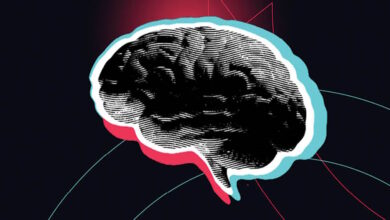“It’s ok, not to be ok”
Michael Tibollo Associate Minister of Mental Health and Addiction

The pandemic has changed our lives significantly. The impact is meaningful in our mental and physical approach to the virus and there’s still much to learn about mental health and its long-term impact.
This week, Manual DaCosta interviewed Michael Tibollo for Here’s The Thing (Camões TV) to give us a better understanding of what is being done to ensure that our mental health is taken cared of.
Tibollo dedicated is life to Law for 30 years, while being involved in the community and in philanthropy which eventually led him to pursue a career in politics. Presently, Michael Tibollo has the role of Associate Minister of Mental Health and Addictions, being the first in the Province, and he is the MPP for Vaughan-Woodbridge. From 2018 to 2019, he played the role of Minister of Tourism, Culture and Sports. However, his focus goes beyond being a politician, as his purpose is to advocate to urgent matters.
Manuel DaCosta: You were a successful lawyer for 30 years, what attracted you to politics and embracing difficult subjects like you are doing now?
Michael Tibollo: I was very happy practicing law… I was also running an organization called Caritas. Caritas is a residential therapeutic community that helped people that had addictions and disorders. For 10 years, I was running the organization as a volunteer and I came across numerous problems. The organization was founded by Father Gianni Carparelli and I noticed the governments weren’t very helpful regarding funding programs. So, I lobbied and lobbied and was kept being told there was no money and no way of fixing it, to the point where the Provincial, along with the Federal Government, announced they would invest 3.8 billion dollars in Mental Health and Addictions. That attracted me to come to the political world, not to become a politician but to advocate. I worked very hard to get myself to the position of Associate Minister of Mental Health and Addictions, which means that at the Cabinet table this isn’t a second hat a Minister wears. There’s a Cabinet Minister responsible, which means that for every dollar allocated for Mental Health and Addiction, regardless of the 16 ministries affected by mental health and addiction, now there is a voice for the people. That’s why I am where I am, and very happy. Unfortunately, Covid has created a very difficult situation, because it forced us to have to do much more in a much shorter period of time.
MDC: Within the Cabinet, what has been your biggest challenge in implementing a program for mental health? How can you work with restrictive funding?
MT: The first thing we did was to create a strategy, ‘The roadmap to wellness’, a plan for the Mental Health and Addictions for the people of the Province of Ontario. The plan lays a foundation, we have created a life span model, we looked at each phase of development… so, under the age of 12, between 12 to 24, 24 to 45, 45 to 65 years and 65 and over… we created that base.
Then we need to develop a step care model, so we have as many services available within the community that are culturally sensitive. You should be able to get help in your language or with someone that is sensitive and understand your culture. The investment we are making is 3.8 billion dollars, over 10 years. In our first year in government we invested 174 million dollars do start filling some of the gaps because the system we inherited was broken, fragmented and with lack of access to services.
If you have someone that has a problem, they go to hospital, they give them a pill and send them home. If someone is suicidal, they keep them for 72 hours and then send them home. These are gaps we wanted to identify and start to fix. Last week, we announced another 176 million dollars in investments. So, this year, we have actually invested 350 million dollars in mental health and addictions and the first part I mentioned, has to do with addictions. We saw a gap in mental health in our colleges and universities, we’ve seen higher rates of suicides, anxiety, depression with the students. Our intention is to look at the system and be laser focused to where the gaps are, focusing on fixing those gaps and then scaling the system throughout the province so everyone has access to services.
MDC: Speaking of students and parents, especially at the university level, seems to be a huge increase of mental health issues from lack of social contact, including drug use and suicides. Do you think there’s a system in place, that’s efficient enough, to get help to those students?
MT: That’s a very good question. Unfortunately, with Covid-19 we were forced to use virtual resources. One of the things we have introduced is internet based cognitive behavioral therapy. There are several other programs for front line workers and first responders. We have had 40,000 going online and use those services. One of the things in therapy is that you want that opportunity to be face to face to your therapist and those are being reintroduced now.
I don’t want to make it sound like the situation is hopeless. What we found is that 70% of the mental health and addictions young people face today, could have been diagnosed and dealt with when they were adolescents or children. We are looking into invest money in children and youth and hopefully we will be doing an announcement soon that will show our commitment. We know we can reduce addictions by 25% and we can teach coping mechanisms to deal with the mental health issues. The answer is investing today for the future and doing it on the basis of what is the best interest for the people. That’s the commitment our government made, everyone gets the best service available when and where they need it.
MDC: There’s many types of mental health issues that are not addressed all the same. There seems to be a shortage of human resources to treat people with mental health issues. Do you agree? And are adjustments being made?
MT: It’s a very complicated question. When we look at what we need to do, we look at the life span of individuals, we also have to look at different groups within society. When you look at first responders and the complexities they face, having to work longer shifts, the possibility of taking the virus to their home, many of them are women and they have their spouse and their children… The amount of pressure, stress and anxiety that those individuals have is huge. We have programs specific to them to help them. Looking at the children, we have kids that are sitting at home, doing school virtually. The cognitive development of the children is being impacted by Covid and we won’t see the results until later on in life. We need to do more to ensure their mental health is being looked after.
We always talk about having a healthy society, the pandemic and how many people have died… I keep on reminding that more people die from mental health issues, suicide and opioid overdoses than the pandemic, but nobody talks about it.
We talk about the first wave, the second wave, a possible third… the fourth wave is the tsunami, which is mental health. Without mental health you can’t have health.
MDC: We have seen food banks usage increased by 500% and we all know that good mental health comes from good nutrition. How can we remedy a situation that will become a huge mental health issue if even food availability is not being secured?
MT: The reality is that to achieve mental health you need to consider all the determinants of health, which includes food security, housing, education, a job. To be mentally healthy you need to have all these other things working together, things that our government has been very focused on. For instances, when we talk about housing, I have a very close relationship with the Minister of Housing in terms of the investments that have to be made to ensure that a person has a roof over their head. In terms of food security there is a lot of work that continues to be done, whether through the Minister of Agriculture to ensure that food that is available and being destroyed because of the lack of markets is being incorporated back for people to have access to it. Again, having a Minister of Mental Health, the first in the Province, seating at the table being able to put these issues forwards, allows everyone to look at it through a different perspective.
If we want to make sure people are healthy, we have to take care of their mental health. In Canada, one in five people suffer from a mental health or addiction issue. We all know someone that has depression, anxiety, is isolated or that perhaps is using alcohol or a substance to substitute for that lack of feeling they can cope with difficult situations. We all have to take care of each other.
MDC: The other day, I was reading that the famous Chef Chang in Toronto was saying that he is a neurotic mess because he sees business closing and there has been no help provided to restaurant owners. There’s a huge cost in closing down a restaurant because of the investment made and they can’t keep the product. Therefore, since the shutdowns started, there has been thoughts of depression and suicide. Many people losing their business, being shut down without a proper warning, in financial stress… This is something the government needs to consider, paying special attention to small business owners.
MT: I can tell you for a fact that our Premier does not sleep at night because of that. I have had numerous conversations where I’m advocating for health and safety of individuals and he is saying ‘Yes, I understand but we have an economy that we need to put in place’. As he pointed, if we don’t balance the economy with the health, the health is going to tip, and it will be much worse. We need to find a happy middle to keep the businesses safe, to keep the economy moving forward and keep people safe. I do not envy his position, every day he is bombarded. He is trying to understand everything through the lenses of the Chief Medical Officer, which so far has given us good guidance, but at the same time listening to all of us and listening to the community.
Restaurants are an important key part of Toronto. I was the Minister of Tourism, Culture and Sports for a while, the economy in tourism accounts for 38 billion dollars in our economy. The impact of not having the restaurants, the hotels, our convention centres not working, all the staff associated, and all the ancillary businesses associated as the food suppliers and food growers… that is a large portion of the economy. We need to figure out a way to balance that out and hopefully we will have a vaccine that will give us a better solution than what we have right now. However, at the moment, we have to maintain physical distance, wear a mask and follow the basic rules.
MDC: The pandemic and its effects will cause damage in the years to come. What is the government’s long-term plan to deal with mental health issues which may not be easily solvable?
MT: In 2010, I can say as early as 1979, the system was looked up and was determined to be broken. The standing committee in 2010, constituted by all the parties that were then in power, determined that the issues we had was accessibility to the system, fragmentation in the system. As a result of that, there wasn’t a standard of care across the province.
When we came to power, the first thing we did was to build that system with the 2.8 billion dollars invested. We developed a centre of excellence that is based on the same principals as the Centre of Excellence for Cancer Care. That will force us to focus on developing strategies that are going to give individuals the best care possible. That Centre of Excellence was created and its working. We will continue to make investments in the next 10 years to fill the gaps and to allow the system to come together.
Before, we had all these organic organizations that were disconnected. That because there wasn’t a government with a focus to do the job of creating a strong system. We are changing. That’s my job, to make sure that every individual in the province have support and services to care for them.
MDC: I wish you luck with this portfolio, its challenging, especially in the times we are facing.
MT: Programs like these are what brings awareness to the communities and there is still a stigma attached to mental health and addiction. Please, if you need help, get it! There’s an expression “It’s ok, not to be ok”.
Transcrição: Inês Carpinteiro








Redes Sociais - Comentários